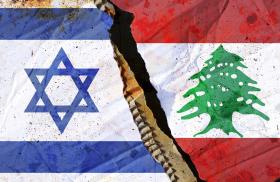UN Security Council Resolution 1441 required Iraq to submit a full and complete declaration of all weapons of mass destruction (WMD) programs and associated delivery systems by December 8. Given the stakes, and the fact that Iraq's previous declarations have been incomplete and misleading, the international community remains concerned, and the United States wary, of the Iraqi declaration.
The Iraqi Objective
The central Iraqi objective today is to avoid a military blow from the United States -- one that could topple Saddam Husayn's regime. The Iraqis will use the declaration to buy time, in the hope that the erosion of Security Council unity might preclude a U.S. attack. They will also encourage the nascent antiwar movement regionally, globally, and in the United States. The antiwar movement is likely to grow stronger with the passing of time. Therefore, Washington needs to act quickly to preserve its freedom of action.
The second Iraqi objective is to end the sanctions regime. Sanctions have in many ways helped Husayn; they have strengthened his grip on power, and he has used them as a propaganda weapon against the United States. However, the Iraqi government wants an end to sanctions so that it can reconstruct the shattered economy and rebuild its military to counter a rearmed Iran.
Iraq's final goal is to enhance its political presence in the region while eliminating U.S. influence. Saddam believes that every crisis that ends with him remaining in power is a victory, and that it raises questions in the region about U.S. credibility. Saddam remains dangerous because he is a risk taker, and he is committed to dominating the region. Time is not on America's side, and he is aware of that.
How might the Iraqi declaration advance these objectives? First, with a declaration of thirteen thousand pages, the review process will be protracted and painstaking, enabling Iraq to play for time. Second, the declaration denies that Iraq possesses WMD. In addition to a show of cooperation with UN weapons inspectors, Iraq will place the onus of discovery on the United States. Failure to uncover proscribed weapons will be touted by Iraq as prima facie evidence that they are in compliance with UN Security Council Resolution 1441.
The U.S. Response
How should Washington respond to such tactics? First, the United States needs to identify remaining gaps in the declaration, in order to shift the burden of proof regarding Iraq's WMD back to Baghdad.
Second, Washington should provide the inspectors with the advice and intelligence necessary for them to discover items that would prove that Iraq remains in material breach of Resolution 1441. Finding a smoking gun, however, will be hard. The Iraqis have learnt many lessons regarding concealment and deception from their past dealings with the United States and the UN, and they have developed ways to defeat foreign intelligence services and inspectors. Moreover, because background checks were not done on the current crop of inspectors, the United Nations Monitoring, Verification, and Inspection Commission is likely penetrated by various intelligence services -- some of which may be sympathetic to the regime of Saddam Husayn. Leaks to Iraq that will facilitate efforts to deceive inspectors are probable.
Should the United States be fortunate enough to gain an Iraqi defector, it needs to be careful and avoid acting on false information provided by Iraqi walk-ins intended to undermine the credibility of the inspectors and the disarmament effort. Such techniques were used to deceive the United Nations Special Commission in the nineties, and will likely be tried again today.
Finally, Washington should pursue regime change. Containment is a failed policy, and inspections are unlikely to lead to Iraq's disarmament. Only regime change is likely to result in the discovery and destruction of Iraq's WMD. While this course of action entails numerous risks, the United States cannot afford to ignore Saddam's WMD threat; doing so would endanger the lives of many innocent Americans by paving the way for a bigger, more deadly event along the lines of the September 11 attacks.
This Special Policy Forum Report was prepared by Merissa Khurma.
Policy #694


